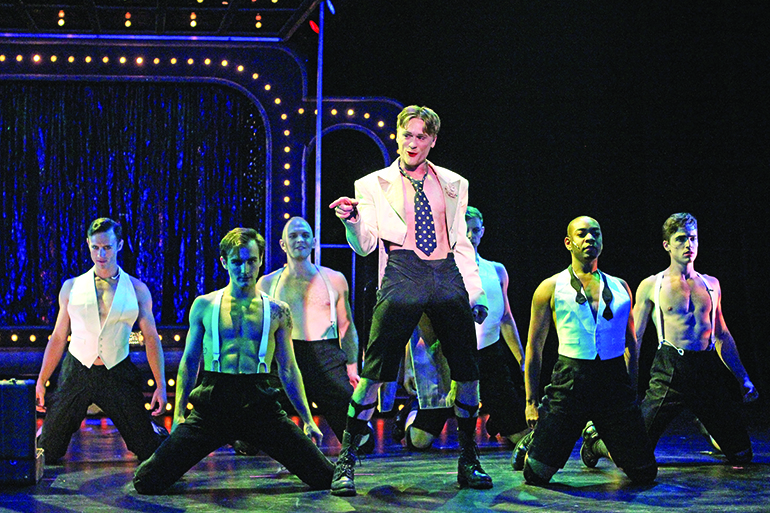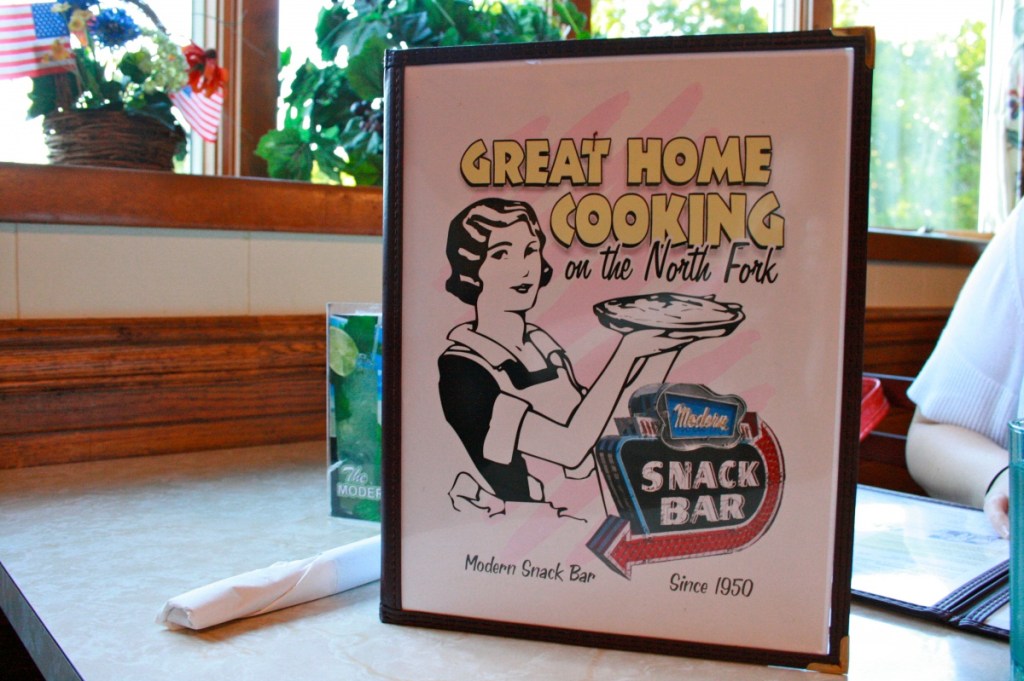Musical Review: “Cabaret” at The Gateway Playhouse

There are many reasons we enjoy musical theater. It transports us, entertains us and, if we’re lucky, makes us feel something. Cabaret is not a happy-go-lucky production, although it may initially seem so in the very beginning. Playing now at The Gateway Playhouse in Bellport, Cabaret is raw and gritty, depicting life in pre-World War II Germany—an intense and compelling story that does more than entertain its audience: it grabs you from the start. So hold on and enjoy.
At the Kit Kat Klub in Berlin, the cabaret is life. The seedy nightclub is rank with sex, drugs and dancing, led by an eccentric Emcee, played by the uber-talented Josh Canfield, who’s becoming a Gateway regular and continues to deliver one incredible performance after another. A true professional, Canfield embraces his character, embodying the delightfully unpredictable nightclub host, shocking and entertaining us throughout the performance. The opening number, “Willkommen,” is packed with raunchy dancing and bold lyrics. The audience loved every second of it.
We’re introduced to a young American novelist traveling to Berlin in search of inspiration for his next novel, Cliff Bradshaw (Steven Grant Douglas), who meets Ernst Ludwig (Alex Puette) on the train and the two strike up a friendship. Ludwig is a German who refers Bradshaw to Fräulein Schneider’s boarding house. Fräulein Schneider (Dorothy Stanley) is a kind German woman who takes Bradshaw in for half the price she usually charges for a room. She’s a sturdy lady who has endured the hardships life has thrown her way. In the number “So What” we learn just how dismal her life has been.
From the sedate boardinghouse, we’re transferred back to the Kit Kat Klub, where our exuberant Emcee is introducing headliner Sally Bowles (Cortney Wolfson) performing “Don’t Tell Mama” alongside the Kit Kat Girls. It’s a raucous, eyebrow-raising number and captures the devil-may-care attitude that existed in pre-Nazi Berlin. Our American novelist happens to be at the club that night and the flame-haired Sally catches his eye—although the other eye seems focused on male members of the Kit Kat Club. In the number “Two Ladies” it becomes clear that there’s no judgment at the cabaret, with boys kissing boys and girls kissing girls—it’s all part of the culture of Berlin before war ravaged the country and its people.

When Sally is fired by the owner of the Kit Kat Klub (who’s also her current lover) she latches on to Cliff and begs him to let her live with him. Cliff can’t resist the vivacious Sally and agrees. Unsurprisingly, Cliff falls head-over-heels in love with the cabaret star. When Sally becomes pregnant, Cliff doesn’t care that the baby may not be his. His love for Sally clouds his judgment and soon he demands they flee Germany and move together to his home in America.
In the midst of the shocking antics at the Kit Kat Klub is the budding romance between Fräulein Schneider and one of her tenants, an elderly fruit vendor called Herr Schultz. Almost immediately we can sense that the romance between the two is doomed. During the pair’s engagement celebration, we learn that Ludwig is a Nazi officer and that Herr Shultz is Jewish. In this scene we realize the tale unfolding before us is darker than we could have imagined.
The music of Cabaret is infectious, especially the namesake number. This cast is sensational and each number has its own flair and flavor. Canfield is spectacular throughout the performance as our Emcee–even showing the unsuspecting audience some love as well (can he be in every Gateway show?). Our Emcee becomes a darker version of himself towards the end, all culminating in the final act where the Nazis begin unequivocally changing the lives of our characters—and the world—forever.
Cabaret is at The Gateway Playhouse through August 18. For tickets and information visit thegateway.org.



